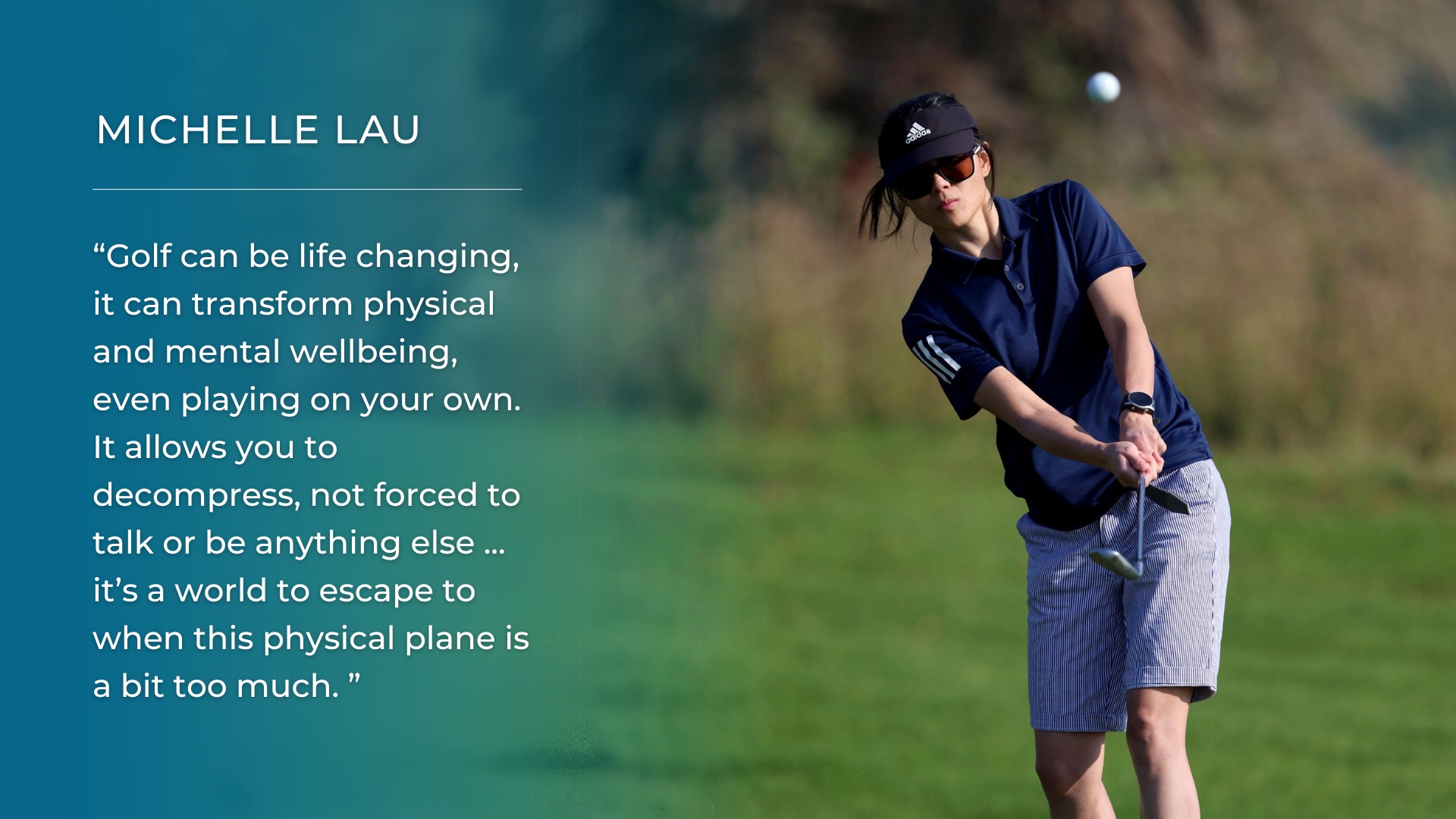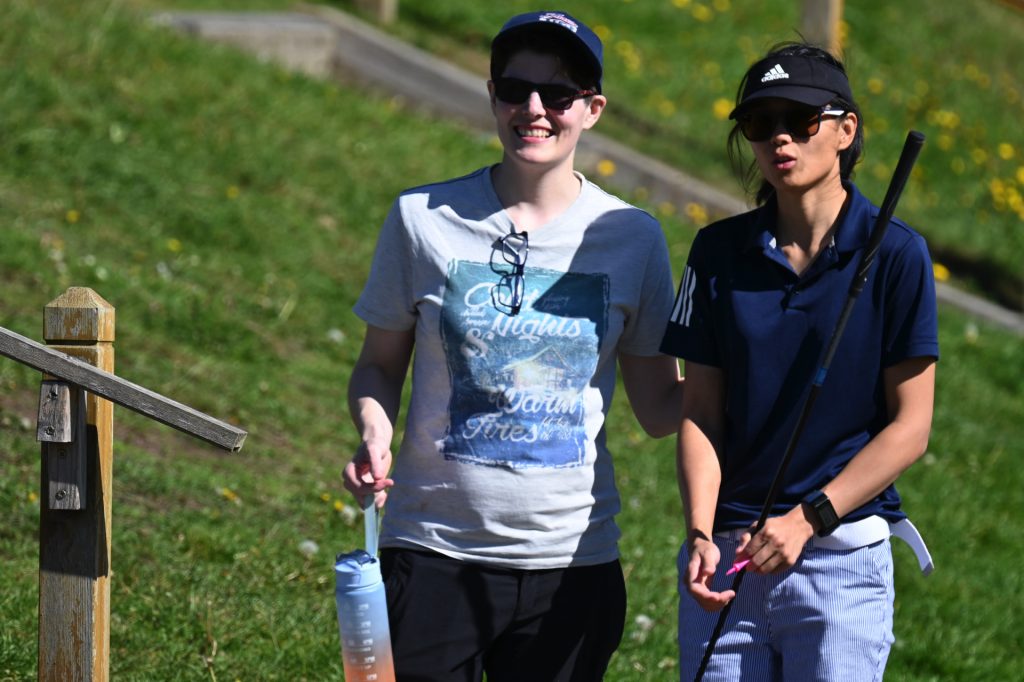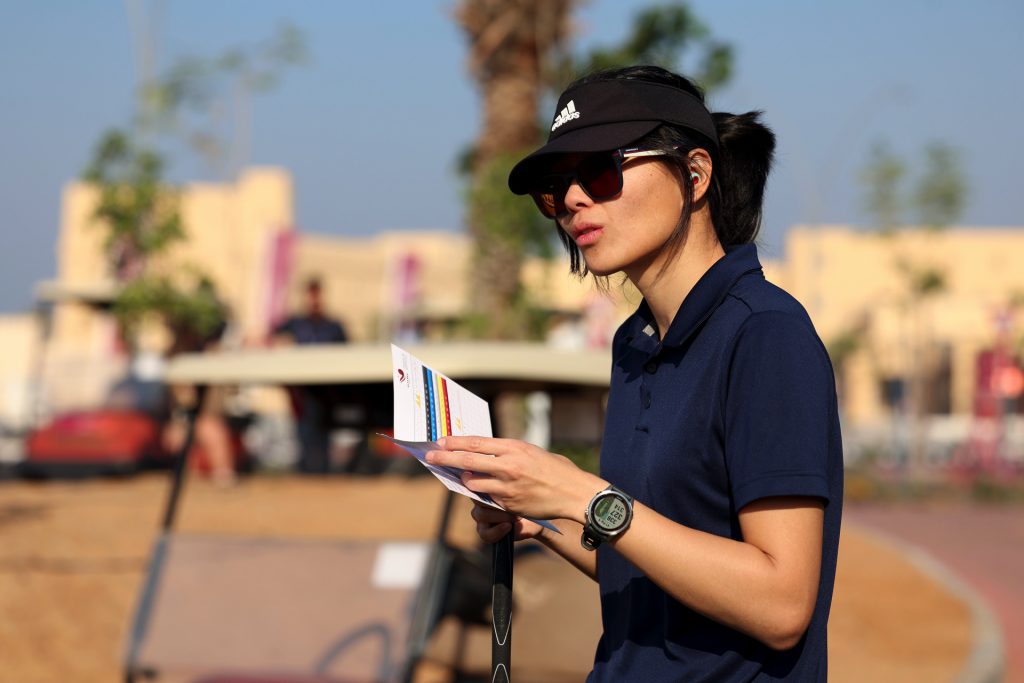
Tuesday, May 30, 2023 – the early start after restless sleep, the trip from Cambridge to Coventry, all left Michelle Lau on the verge of a “meltdown”; she was about to make her debut in an international EDGA ‘G4D’ (golf for the disabled) event, this making her so anxious that on arriving at the golf venue a significant part of her wanted to leave quietly and go home.
Michelle reveals that having Autism and ADHD and playing in a competitive field of strangers, away from the routine and familiarity of her home club in Cambridgeshire, was a huge personal step for her to make, one that she so nearly didn’t take.
Once deciding to continue she had received a warm welcome, and on the first tee it was Michelle who was gamely offering sweets to her new playing partners, smiling through the jangling nerves. However, as she feared, this first round would prove emotionally exhausting: she found herself zoning out, struggling with her decisions, feeling clumsy, with speech slowing as she tired, annoyed with herself that she couldn’t look her playing partners in the eye, never mind the important stuff of reading the putts and knocking the ball into the hole.
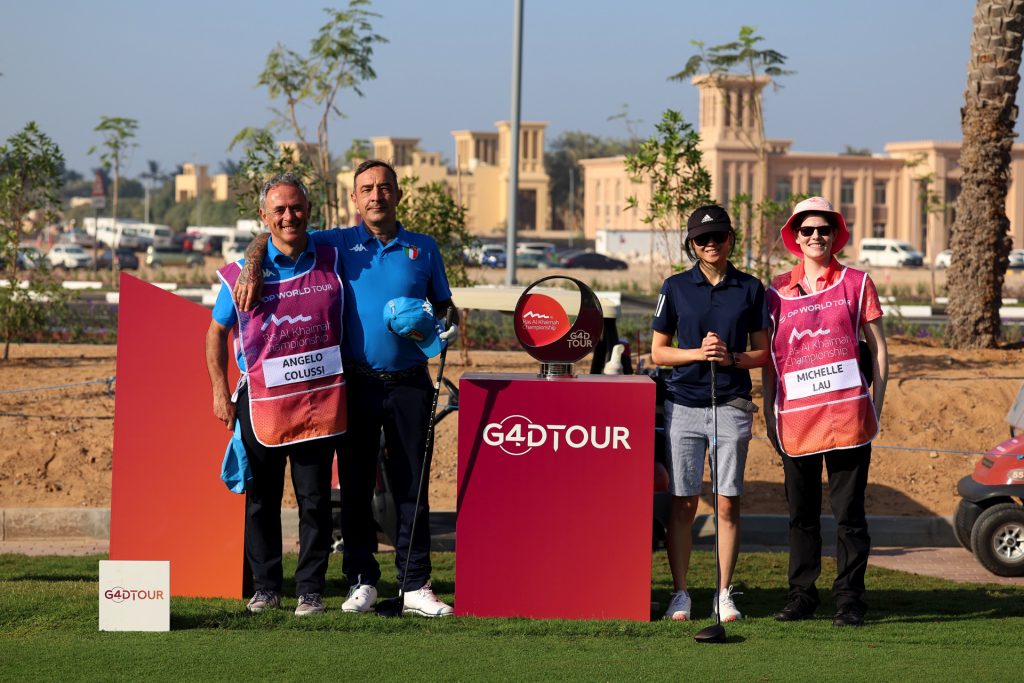
For someone who had been diagnosed in her early thirties after being beset by feelings of isolation and anxiety since being a teenager, this reaction was to an extent par for the course. But it hadn’t been all bad. She had turned up, given it a good go – just like the EDGA player called Erika she had seen in her posts on social media. Sweden’s Erika Malmberg has Autism and is charting her own course in life, with golf playing a significant part. Watching Erika inspired Michelle to join in. Soon after her EDGA debut, Michelle was telling us about her own relationship with golf, or ’Nature Chess’ as she likes to call it; how she loves the technique of the swing and golf’s potential in helping her as she finally understands more about herself.
Amazing then that only eight months on, in January 2024 after pushing herself to attend more EDGA tournaments, Michelle had played well enough to qualify for one of the series of tournaments that are at the very pinnacle of G4D (an event run by golf’s professional European Tour group): the G4D Tour @ Ras Al Khaimah Championship, in the United Arab Emirates. Michelle’s is classed as an ‘intellectual’ disability and she was teeing it up with three leg amputees, an arm amputee and those with neurological or orthopaedic impairments.
Despite her anxiety over travel, with the support of EDGA and her partner, Sian, Michelle had managed to negotiate the 3,400-mile trip to the UAE (Cambridge to Coventry had been just 88 miles). At the tournament’s end, Michelle found herself standing, looking back at the 18th green having come fourth in the field, just four shots away from winning the trophy.
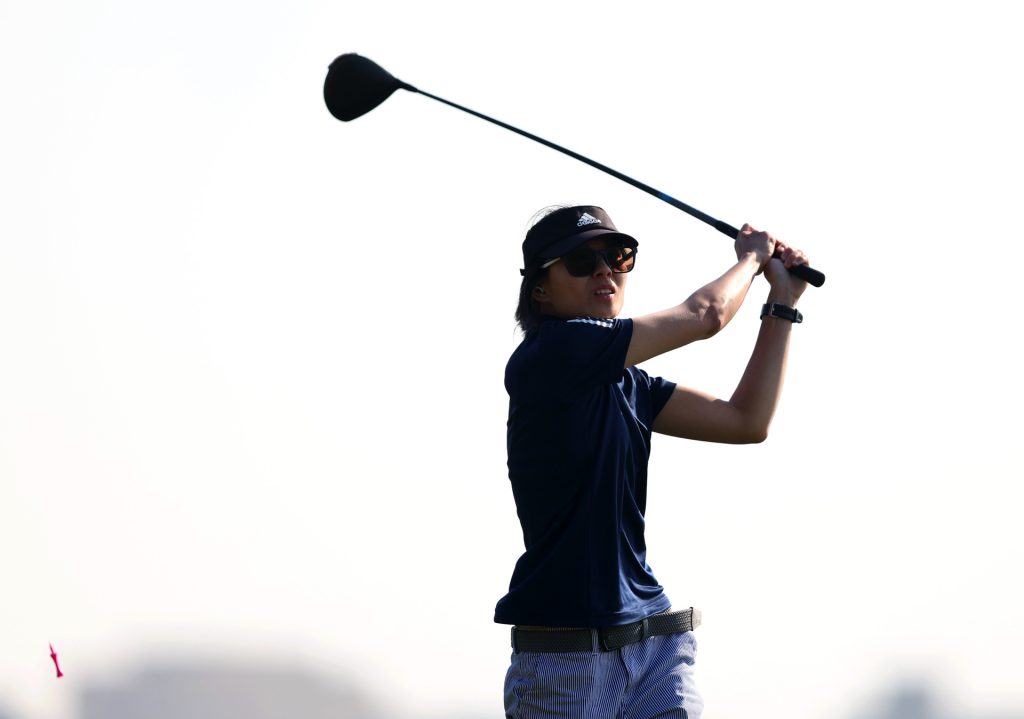
Michelle tells us: “I missed the long par-putt on the 18th at Ras Al Khaimah by half a centimetre – and I giggled despite the rough back-nine, as the audience went ‘Ooh!’ when it nearly went in.
“Sian and Scott [Bennett, of EDGA] gave me hugs as I walked off the 18th but the magnitude of what we’d achieved hadn’t registered yet. Now, I can say I am proud of doing something I never thought was possible.”
The teenage Michelle might well have been astounded. In her school years through to her early thirties Michelle struggled to ‘connect’ with others and while gifted academically she was often unfocused in school and university. The distractions of noise, too many people, lack of structure and unspoken social rules were all testing. Sport was a safe haven. “I was ‘socialising’ through playing a sport with my teammates. I could exert my energy there and not deal with nuances in conversations.”
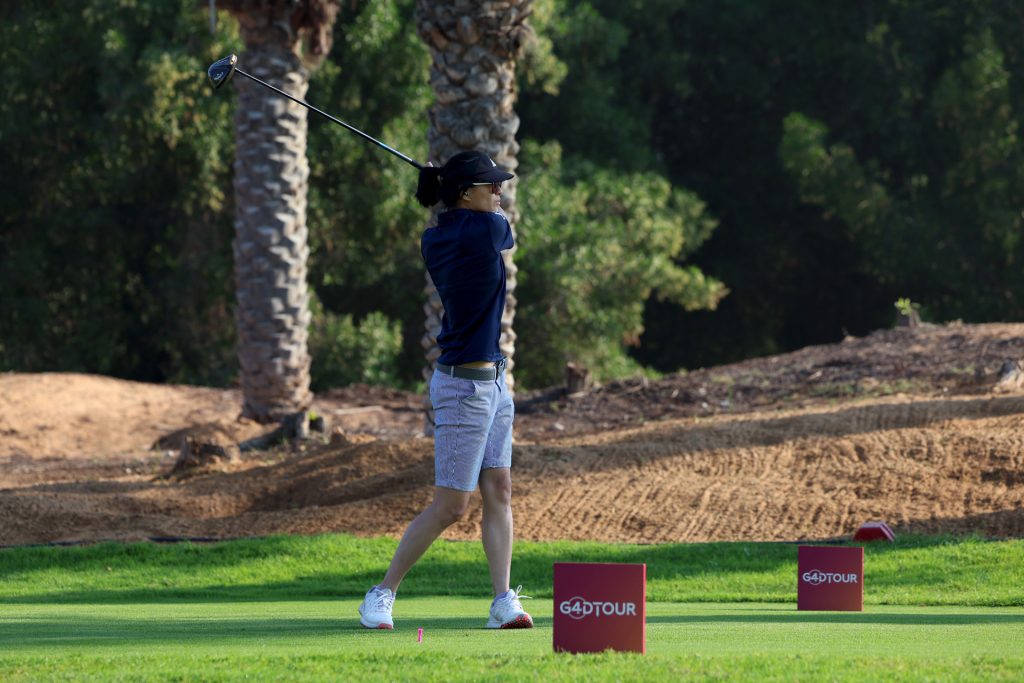
Professionally, having turned her hand to Law and Corporate Governance, today aged 35, Michelle is widening her skillset into software engineering. But academic ability hides the challenges she faces with executive functioning.
“It took me a long time to discover for myself that anxiety is my underlying state, as my condition impacted heavily on my work and life balance,” says Michelle. “I can easily ‘hyperfocus’ and lose track of time, forgetting to eat and drink. I look up at the clock and hours have gone by.”
It would take a six-year wait before Michelle was finally diagnosed with Autism and ADHD at the age of 33. At her lowest point in this period, her valuable physical and mental outlet of sport was also taken away due to a bad hockey injury.
However, this is now considered something of a blessing in disguise because it allowed Michelle to discover golf, and realise she was much more suited to individual, calmer pursuits; she found she enjoyed the science behind golf: all the technical aspects from the swing to the way equipment works would be an unexpected bonus for her analytical mind.
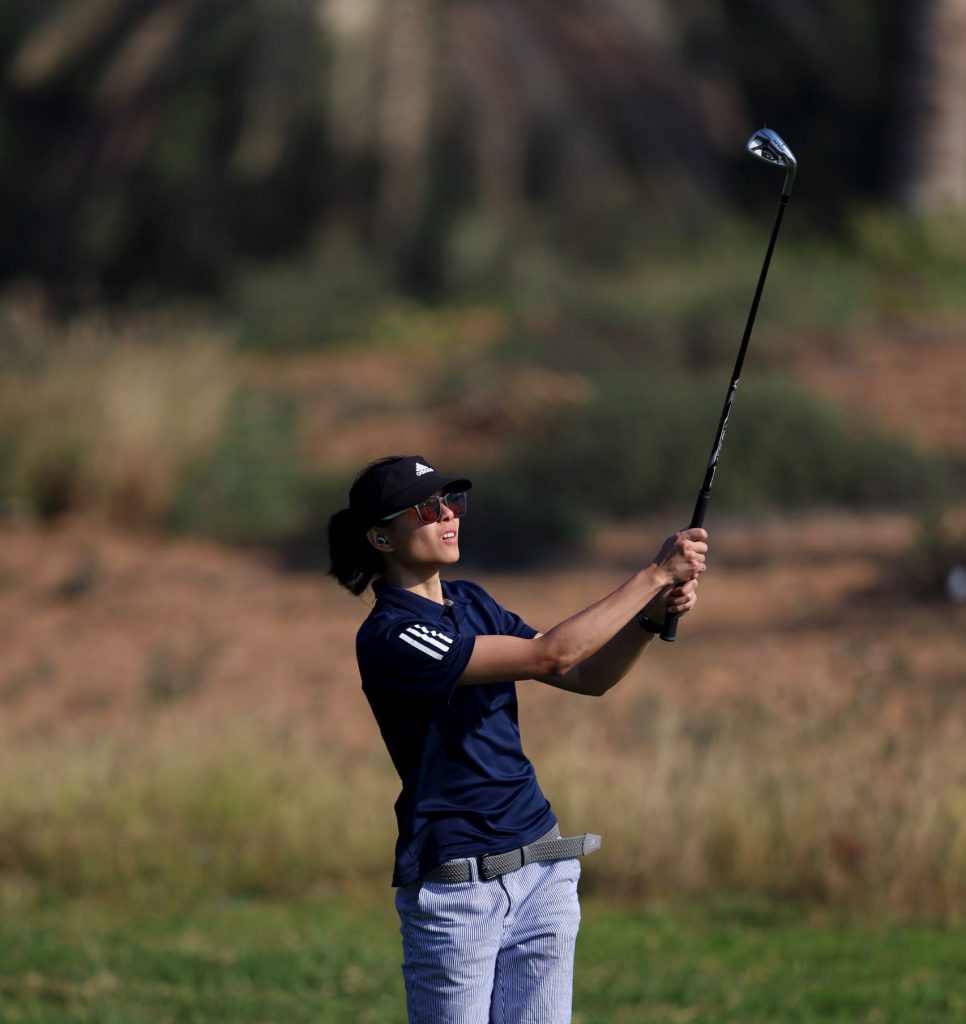
“I first tried golf in 2015 at a Get into Golf group session (there was little instruction and I didn’t really understand). Nobody told me it was a statistical dream! I tried again after Covid in July 2021 and it has become my special interest. Dad has played golf for a while, and now we can talk about technique and analyse our swings. The warm welcome at Cambridge Country Club makes attending the golf club easier. The ladies are so supportive and encouraging. It was a huge step for me to start being open about my conditions but I’ve been met with such kindness. I enjoy hearing their banter and laughter – it brings me joy to hear people laugh – even if I don’t know what is funny! They probably don’t realise that every single one of them has made a difference to me being here – I have so much gratitude and respect for them.”
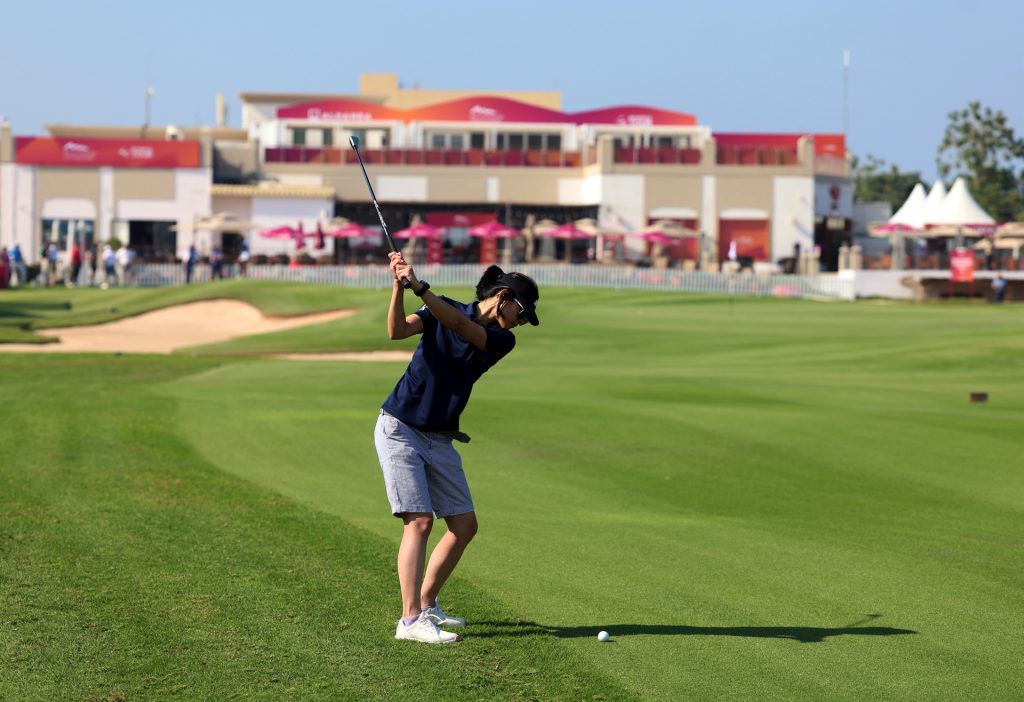
Despite its challenges, Michelle loves the game in all its minutiae. From her mind whirring as she enjoys reading the greens (“I love the slopes”), working on swing technique (again, Dad is often her sounding board alongside her coach), to even studying the physics of the game. “I have a great coach in PGA Professional Joel Rickard. He’s helped me understand the mechanics of the golf swing but most importantly, remember to translate theory into practice.”
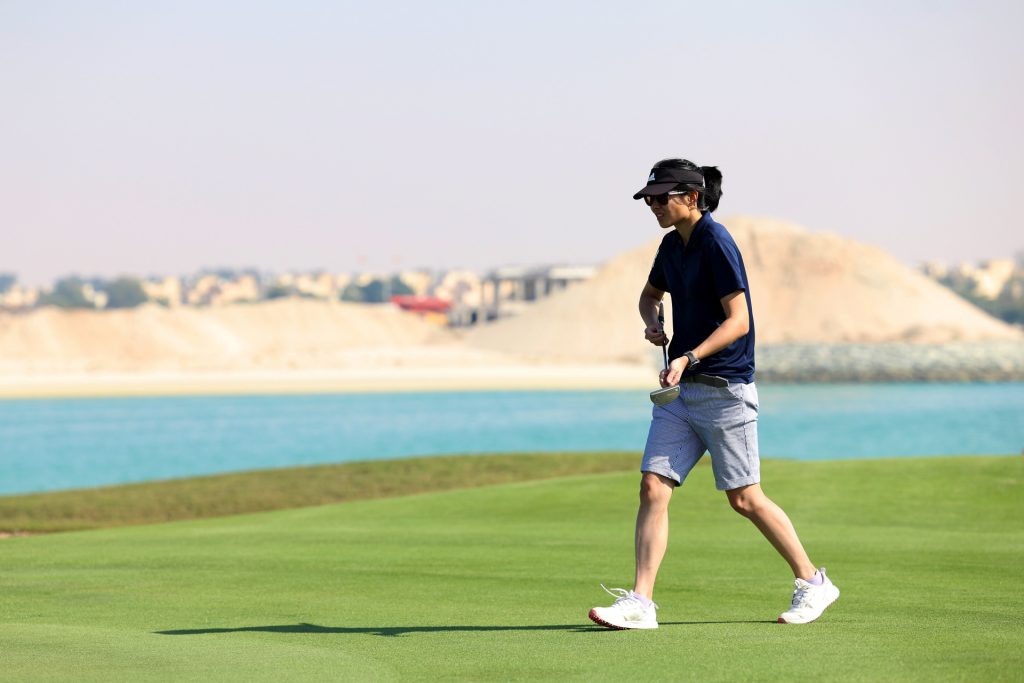
The social/play format of golf suits her too. Michelle can play on her own, with a couple of friends, or in a competition with two to three partners. It is manageable, while she derives deep pleasure from plotting her way around the course looking to build a good score – although accepting that there are factors outside of her control that can topple all her good efforts.
Michelle has discovered that a quiet game of golf can reduce her heart rate. Her calling it Nature Chess will resonate with many golfers who will identify with her description of this demanding game in the great outdoors. Her moves in this game come with a smooth wide swing that suggest her passion for learning the mechanics of golf.

“I was inspired to consider taking the step of competing after learning about Erika Malmberg of Sweden. Erika is also Autistic and I was somewhat ‘star-struck’ when I finally got to meet her in-person in November.”
Suitably encouraged and with an emerging golf game of her own, it was back In May 2023 – with some nudging and encouragement – that Michelle made her debut in the Johnny Reay Classic at Stoneleigh Deer Park Golf Club, near Coventry. Despite her wanting to turn back, after a conversation with Sian Michelle found her courage and was grateful for the warm welcome from the Tournament Director Manon Eggermont. Michelle disclosed she was so anxious that she had had a cry in the toilets, before psyching herself up to head to the first tee. She had brought Haribo sweets and handed these out, tried to look other players in the eye, before she got down to business.
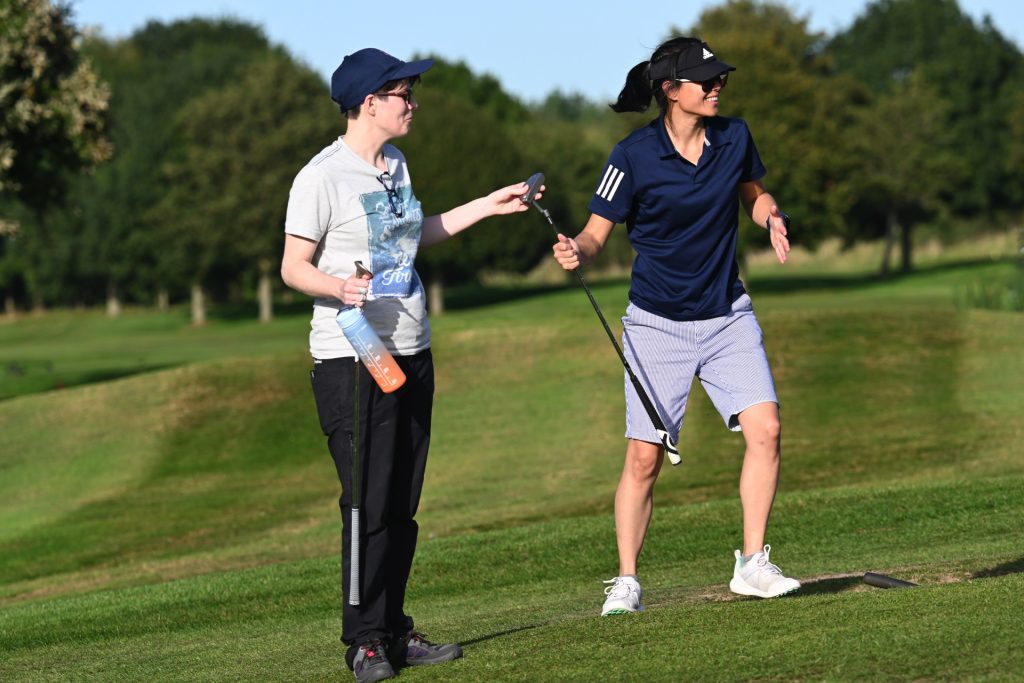
Michelle says: “I was worried about acceptance with a non-visible disability but the welcome from the EDGA team was there and the players were all friendly.”
When playing golf, Michelle will tell you there are neurological/anxiety challenges which lead to physical issues. After four hours of sun, wind and light this can scramble her senses. There are physical issues: staying warm or cool, unaware of hunger or thirst. Keeping good balance in shots, spacial awareness and energy levels are all affected; never mind juggling multiple tasks such as cleaning clubs, handling putter covers, balls, ball markers and tees.
Perhaps because of her conditions and the multitude of thoughts and concerns racing through her mind at the time, Michelle probably doesn’t realise that some of her own qualities do not go unnoticed: a lively sense of humour and quirky quick wit, her friendly way of talking with others and her thoughtful approach to the game are enjoyed by those she meets at a tournament, particularly now she has played a few of these and is settling in a little.
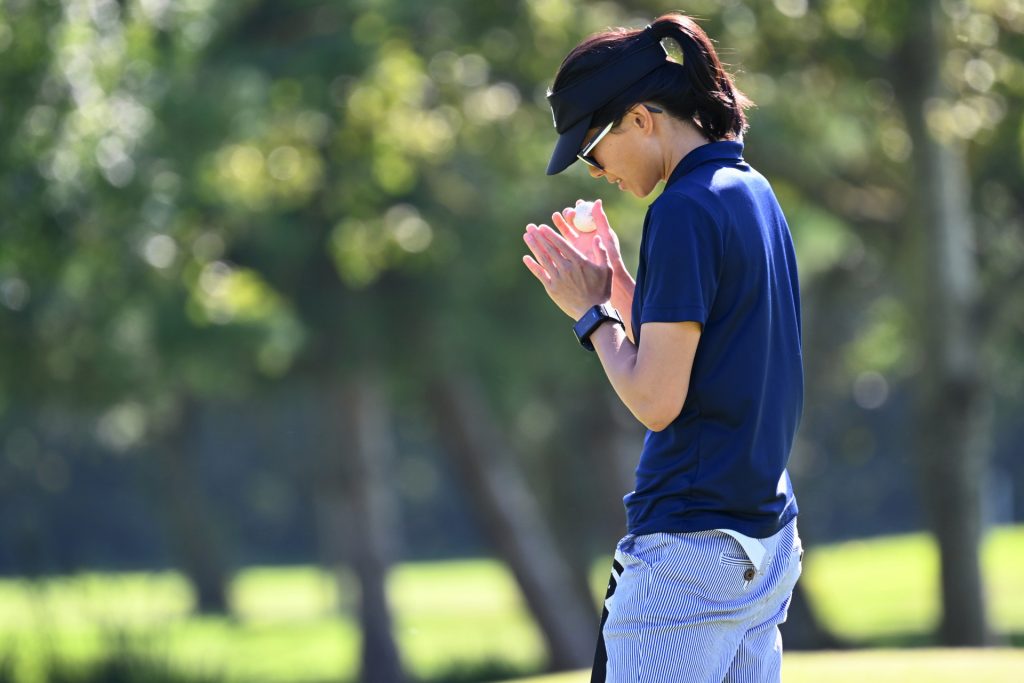
Meanwhile, for anyone who felt that being Autistic and playing golf simply offers you additional Zen-like focus, they would only need to watch players like Michelle Lau and Erika Malmberg to realise this is not the case. For example, Michelle explains about her concentration: “At Stoneleigh, I randomly had Pythagoras theorem and computer code popping into my mind while trying to putt – it just appears.”
Michelle explained that she can’t expect people to fully understand because they are not in her mind or body to feel what is happening. But, she says, “We can be compassionate and strive to understand how others navigate their challenges or how we can help. We can all share compassion and kindness – such underrated qualities that can impact how we feel about ourselves.”
After the roller-coaster of the Johnny Reay Classic, Michelle took her golf to new heights: a top 15 in the EDGA Southport Golf Coast Classic, and her delight with second place in the Net category of the 2023 English Open for Golfers with Disability at Kings Norton GC. This great form culminated in her invitation to the G4D Tour @ Ras Al Khaimah Championship in January 2024.
Michelle says she wants to encourage other people with similar issues in life and through golf. “I wish I had that role model or visibility of someone like me when I was younger – I might have avoided hitting crisis point. Now I can do something about that and share what it’s like and that despite these difficulties, we can do things like compete (a big thank you here to EDGA!).”
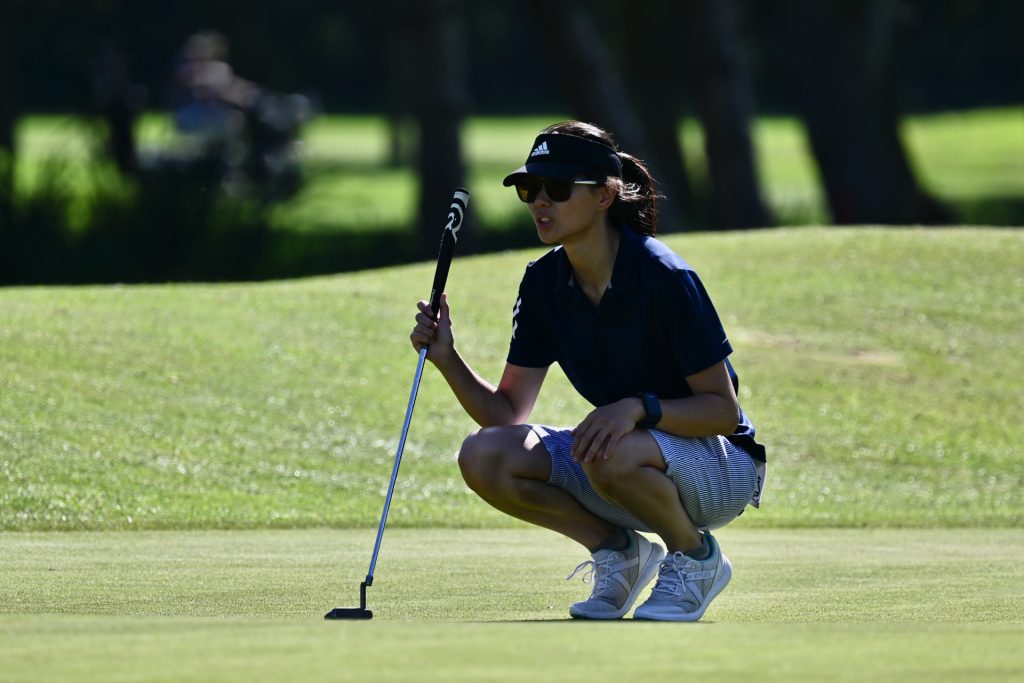
Reflecting on her G4D Tour debut, Michelle says: “It was great to share this opportunity with my loved ones and everyone whose been so supportive: to say ‘I wouldn’t be here without you, I couldn’t have travelled and competed, regardless of the result, without the support and understanding’ – including all at EDGA, the European Tour group, DP World Tour, G4D Tour and fellow golfers.
“I don’t think I’ve fully processed the experience yet. There were a lot of high-anxiety moments and meltdowns (including at the airport… that’s a story for another time) but I managed to travel, compete, do a video interview, and secure a fourth-place finish. It’s surreal – it’s testament to what EDGA is doing. A beacon of hope, inspiration and opportunity.”
Michelle realises she has always had supporters in her corner.
“Growing up, I was very much in my own world and not really aware. My parents became my heroes – they still are. My parents overcame hardship, built a life in a different country – my Mum is so strong and my Dad has such clarity about what’s important in life. They sacrificed a lot for me and my siblings, and they taught me what kindness, compassion and love are.
“Related to that, my older sister, Witney, is also a hero of mine. I see how much she cares for all of us, how hard she works – everything that she’s achieved, and what a great mum she is. She always finds the time to offer support when we need it.”
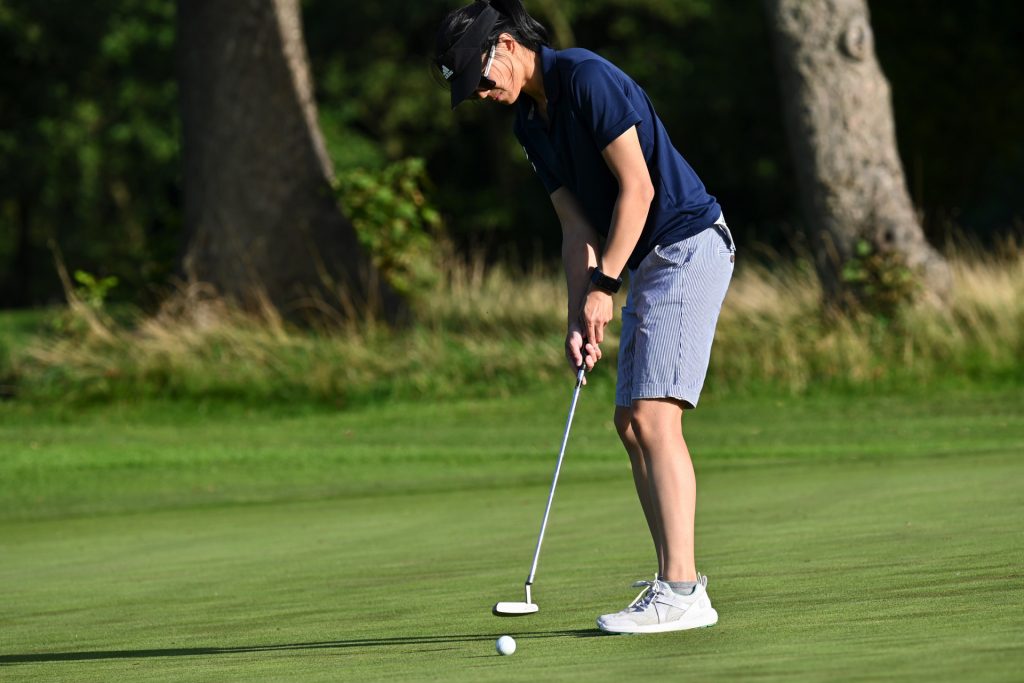
Through all her golf and her wider life, Michelle’s partner Sian is a constant ally – her cheerleader in many ways. On the golf course, Sian is a caddie, chief ‘reminderer’ to eat and drink etc, while in knowing her so well Sian plays a key part in helping Michelle manage her anxiety levels when travelling and playing in events.
Michelle’s rapid progress in the competitive ranks has gained her publicity which she would dearly like to use to encourage girls, women, indeed anyone with Autism to realise that golf could be a wonderful avenue to walk down themselves.
Michelle concludes: “Golf can be life changing, it can transform physical and mental wellbeing, even playing on your own. It allows you to decompress, not forced to talk or be anything else – and for me the statistics… it’s a world to escape to when this physical plane is a bit too much.
“While I am unlikely to ever be a Grandmaster of Nature Chess, I’ll certainly enjoy the challenge of trying, but what means more to me is that I take as many people as possible on the journey with me.”
NB: When using any EDGA media, please comply with our copyright conditions


